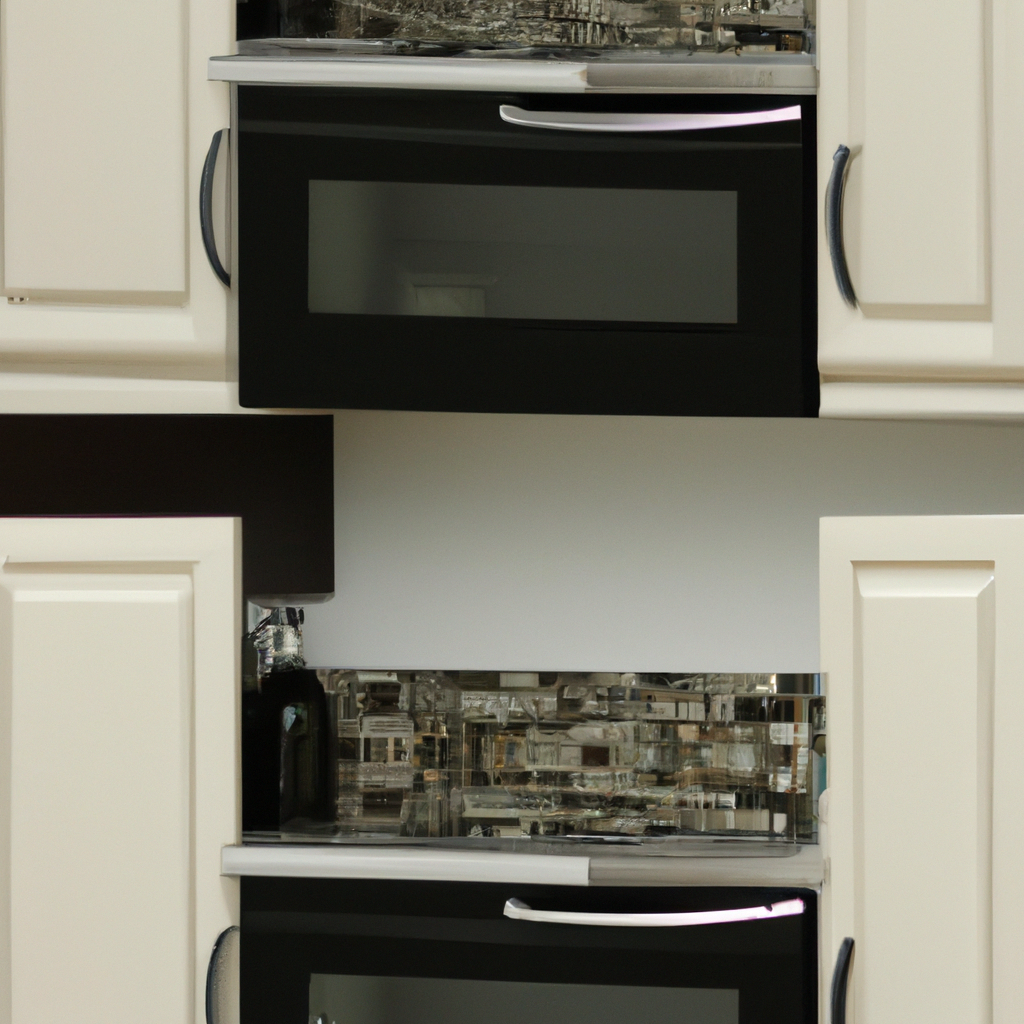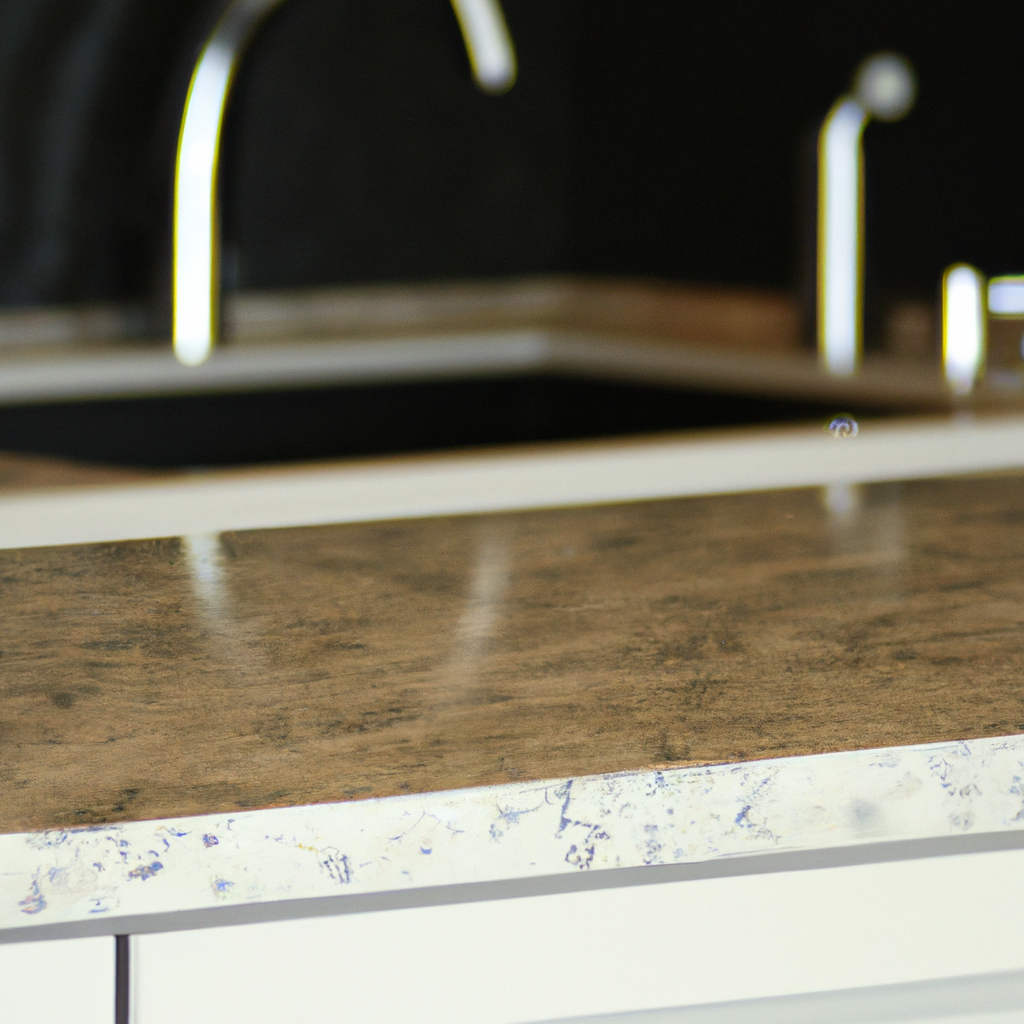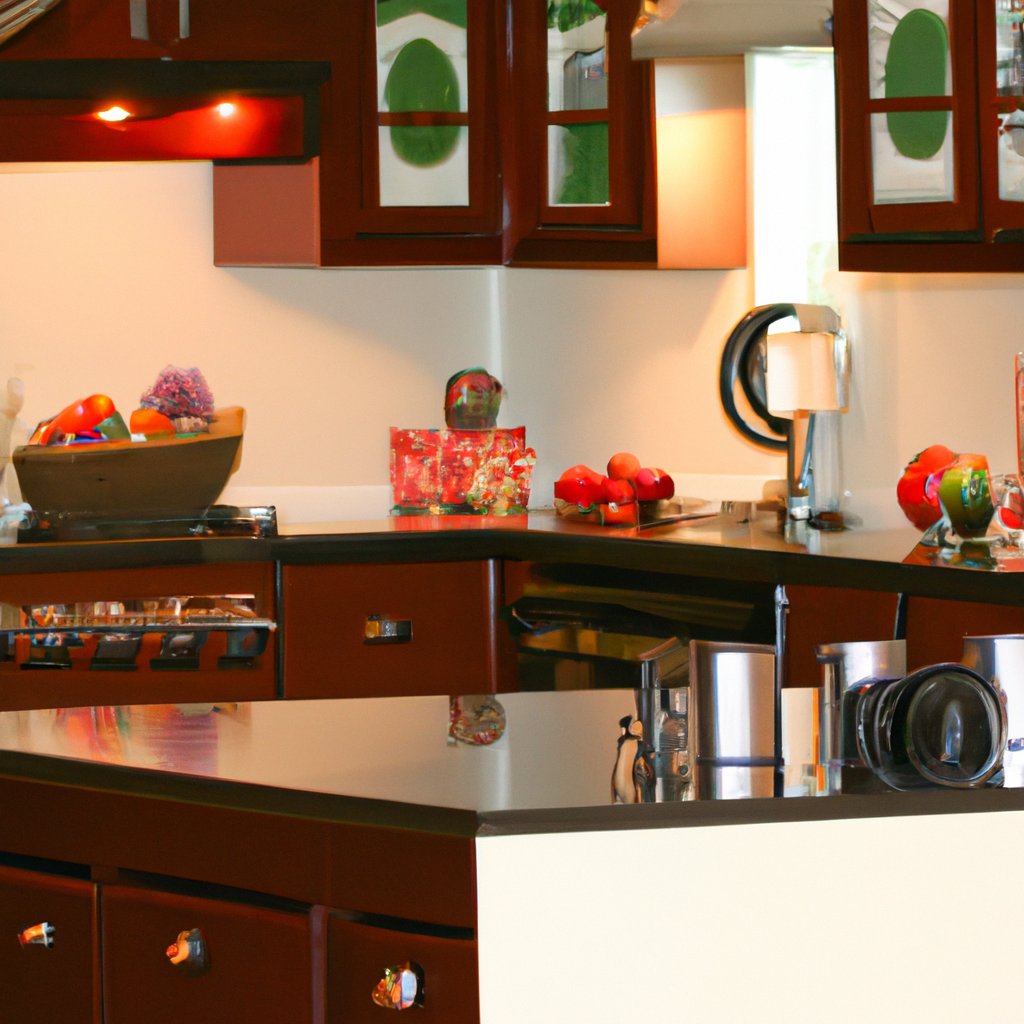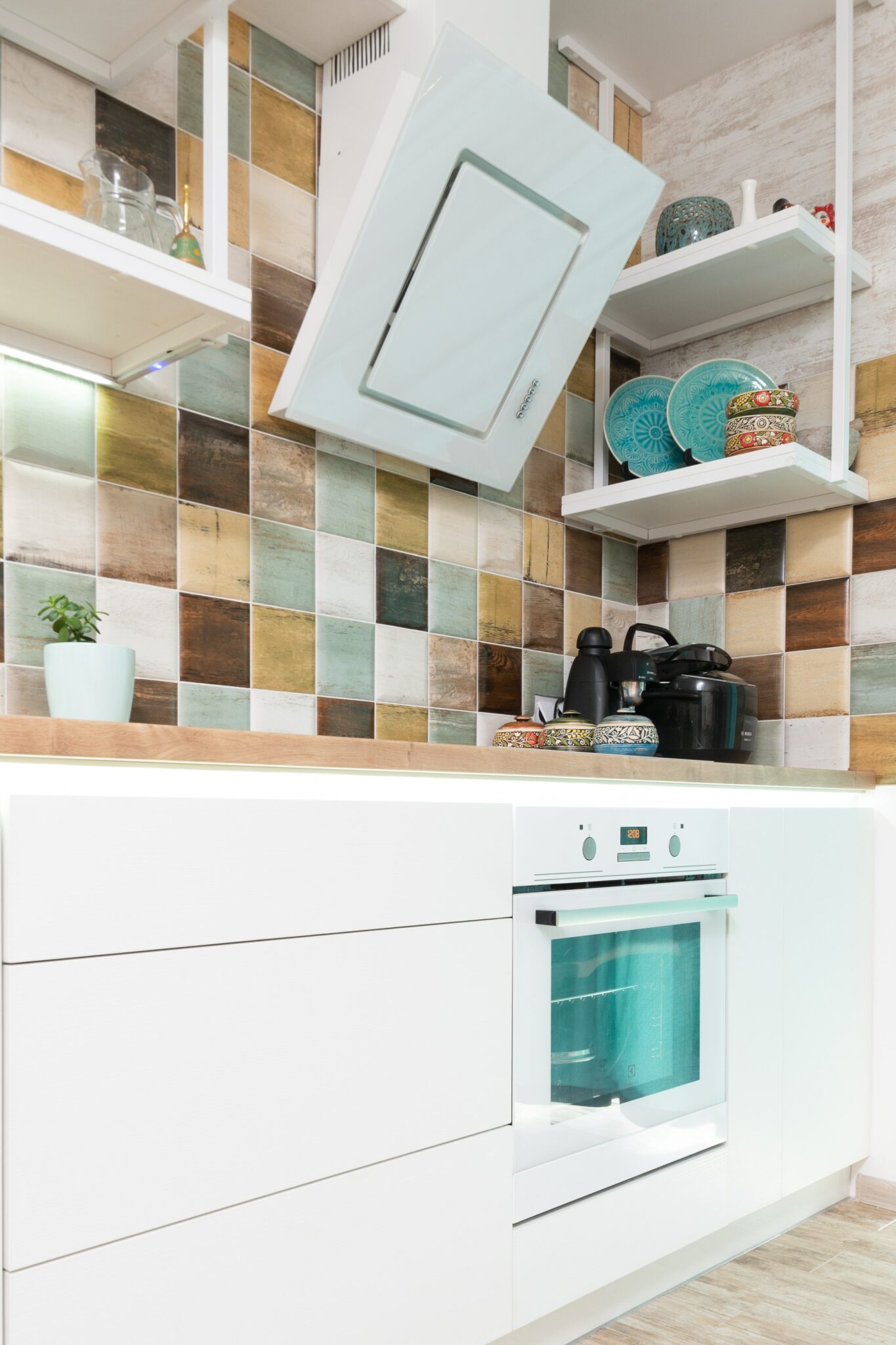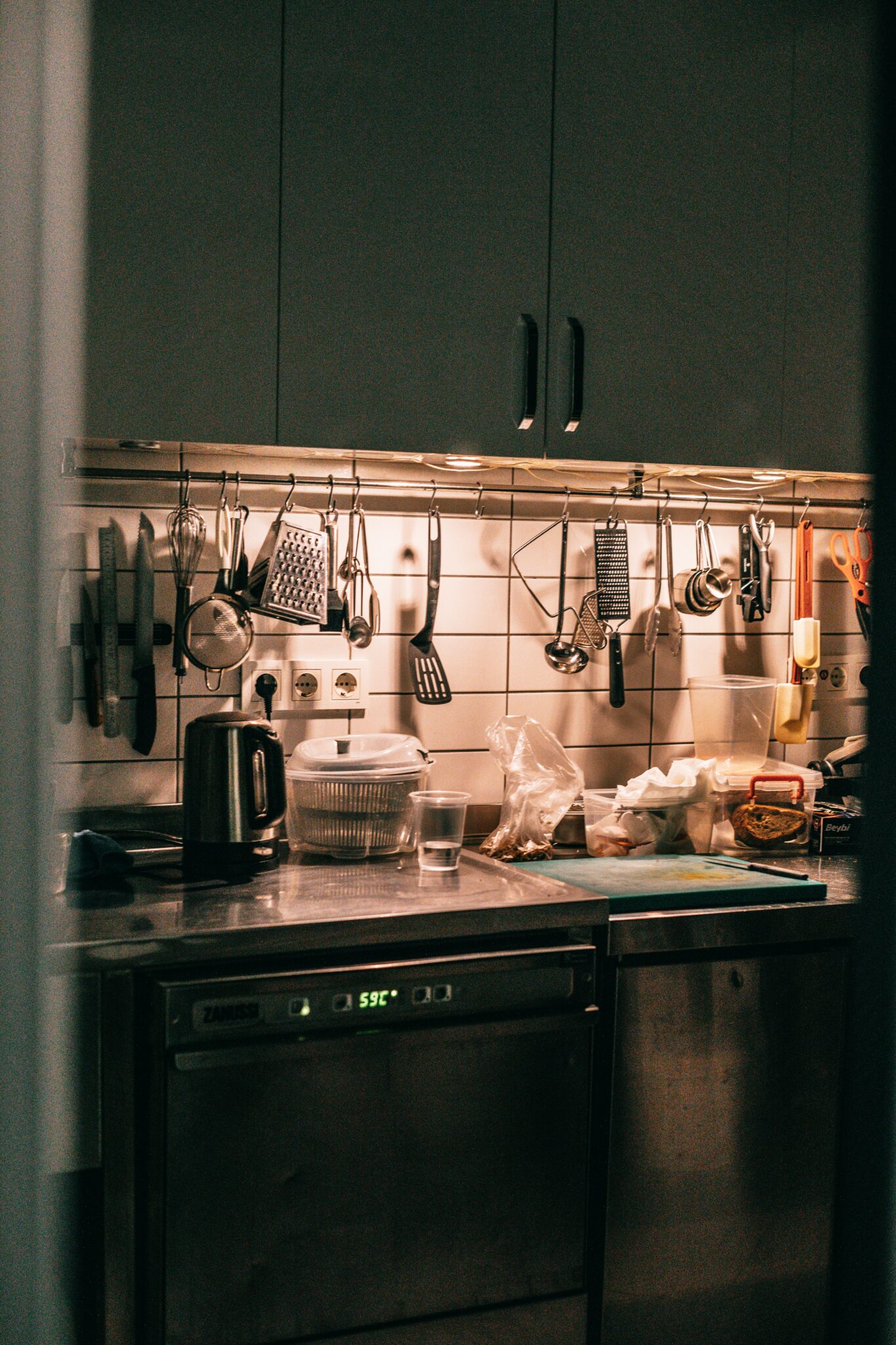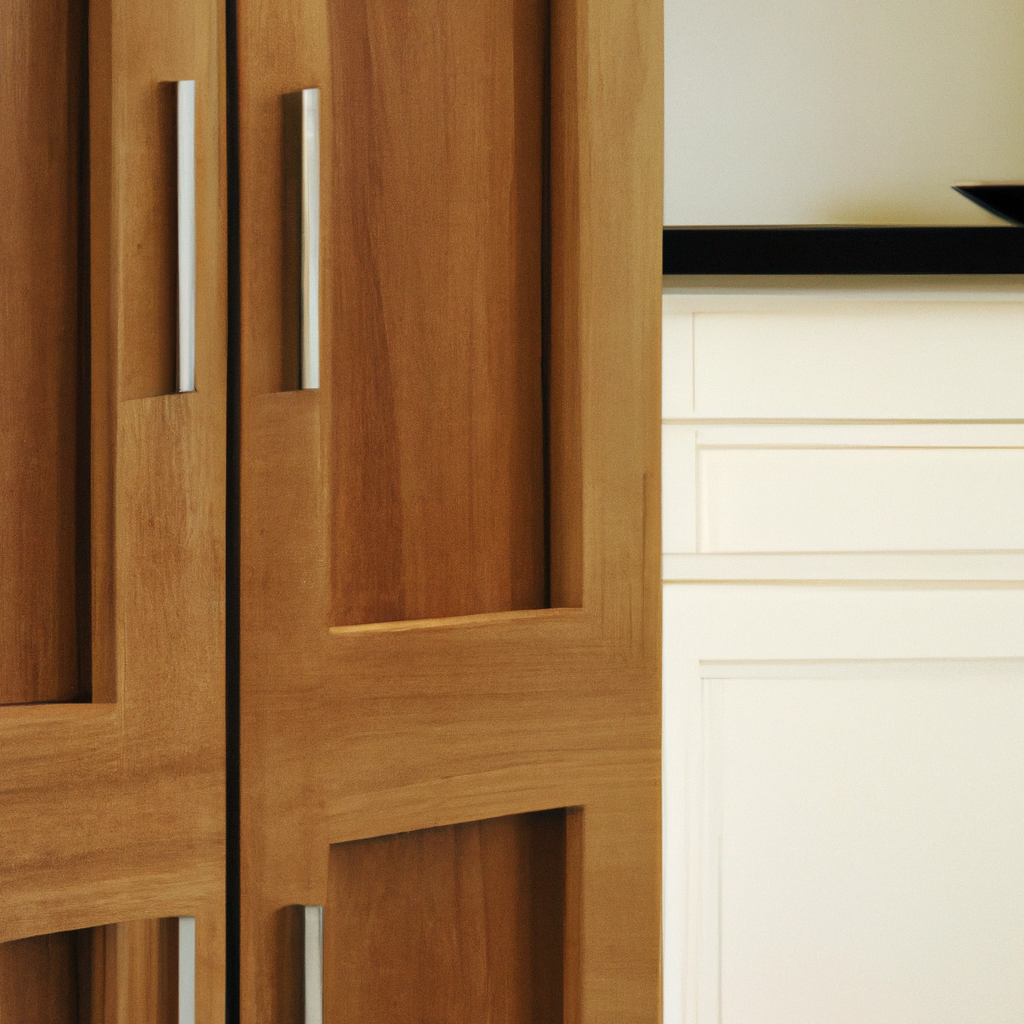Key Takeaway:
- Pros and cons of gas ranges: Gas ranges heat up quickly, offer more precise temperature control, and provide a more traditional cooking experience. However, they can be more difficult to clean, may require a natural gas source, and can be a fire hazard if not used carefully.
- Pros and cons of electric ranges: Electric ranges are easy to clean, offer consistent heat distribution, and are more energy-efficient. However, they take longer to heat up and cool down, may not offer as much temperature control, and require a dedicated electrical circuit.
- Choosing between a gas or electric range ultimately depends on personal preference and factors such as cooking style, type of cuisine, and kitchen setup. Consider the pros and cons carefully before making a decision.
Which one should you pick? Gas or electric range for your kitchen? Here's a guide to help you out! Pros and cons of both – let's explore. Gas range – pros? Can heat up quickly and are usually more affordable. Cons? Can be dangerous with open flames. Electric range – pros? More precise temperature control. Cons? Can take longer to heat up, and tend to cost more. Now you know the advantages and disadvantages of both. Choose the best option for you!
Advantages of Gas Ranges
Gas ranges offer plenty of advantages. They heat up quickly and cool down quickly, so you can adjust the temperature precisely. The oven and stovetop are evenly heated, while electric ranges may have hotspots. Gas stoves offer a better cooking experience with techniques like charring or grilling. Plus, they may save you money in the long run. Spills and splatters are easier to clean on gas grates, and the temperatures are more consistent than electric models. If you want both gas and electric features, you can get a dual fuel range. Gas ranges are a great choice for any home cook!
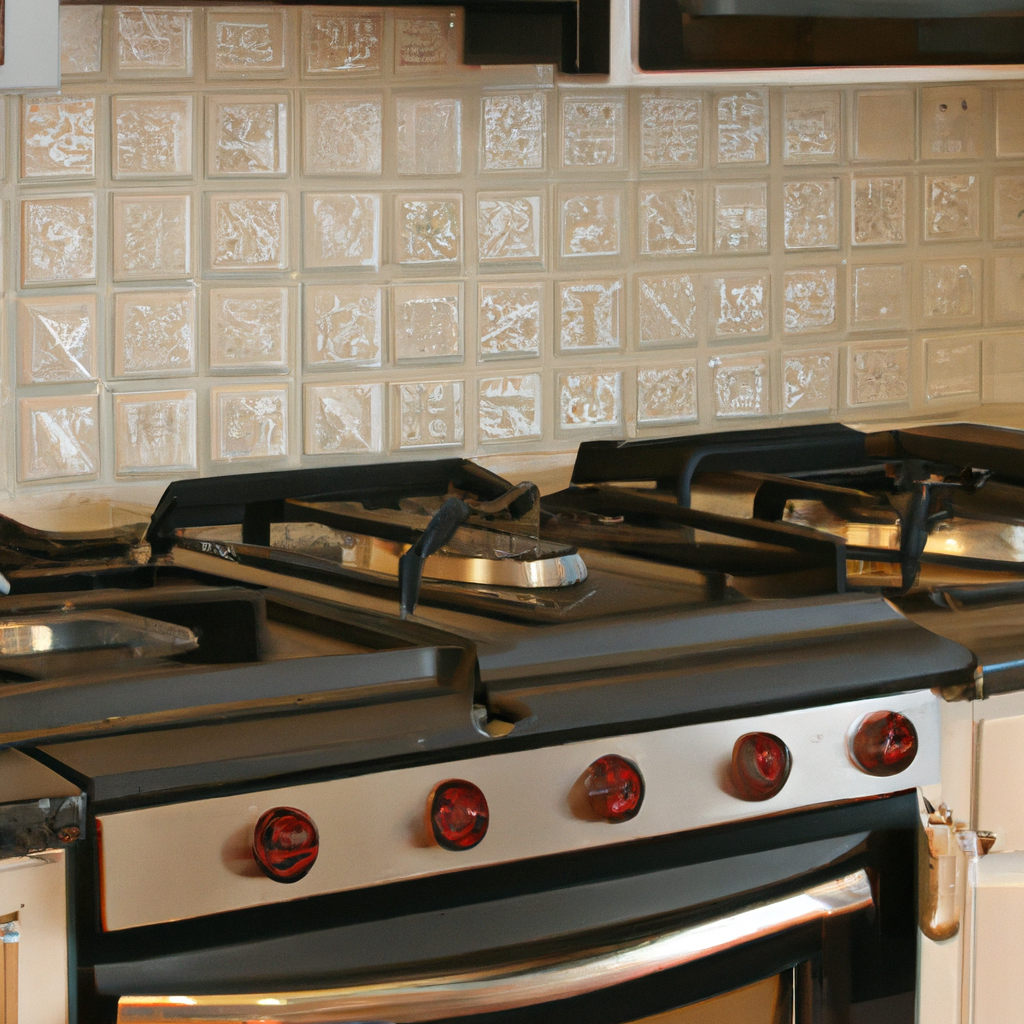
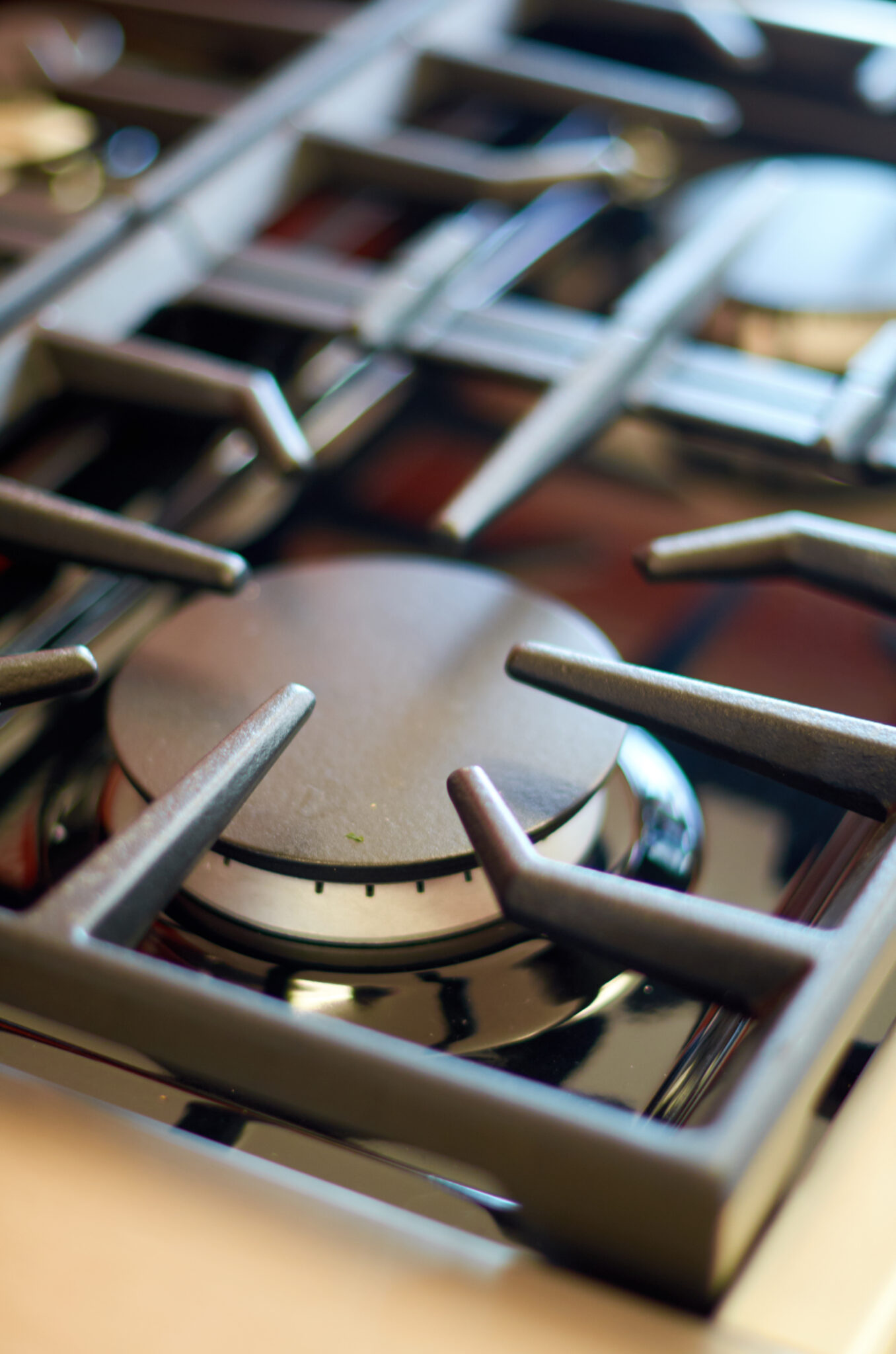
Faster Cooking
Gas ranges are more responsive and heat up faster than electric stoves. Plus, they have even heat distribution. But, it's important to understand the differences before deciding which one to choose.
Electric stoves have metal heating elements or a ceramic-glass surface. Cooking is simpler since there's no open flame. This makes it a safer option.
Gas ranges have many advantages, but they create negative environmental impacts. These include greenhouse gas emissions, methane leaks, and health risks. Also, you need a dedicated gas line for them, while electric stoves plug into the electrical system.
Electric stoves offer better baking performance. They preheat quickly and can cook many dishes, like convection cooking.
Gas stoves cost more to operate, but they're great for grilling food. Electric stoves are more energy-efficient and perfect for baking.
Induction models use electromagnetism to generate heat. They offer flexible element sizes, faster temperature changes, and low heat transfer. Plus, they're safe for the environment since they have little to no emissions.
In conclusion, it depends on personal cooking habits, environmental impact, health effects, performance, temperature control, cost, and maintenance. Combining gas and electric features can provide a great cooking experience while being eco-friendly. It's also important to consider the type of cookware and how it interacts with either the gas or electric stove.
More Precise Temperature Control
Gas ranges are popular with chefs and home cooks, since they offer more precise temperature control. They're responsive, use less electricity, and you can adjust the flame instantly. Plus, they're easier to clean and provide direct heat. However, there are drawbacks, such as emissions of asthma, carbon monoxide, formaldehyde, and nitrogen dioxide. They also need a gas line connection which can be costly.
Electric ranges are more affordable, with smoother stovetops that are easy to clean. Plus, electric ranges have triple elements, bridge elements, and radiant elements.
Induction cooktops are even more energy-efficient and durable, with less heat lost in the air.
Disadvantages of Gas Ranges
Gas ranges have drawbacks. Cleaning can be tricky, as the burners and grates are hard to clean when cooking greasy foods. The operating costs are higher than electric ranges, and burning gas contributes to climate change.
Despite this, you still get precise temperature control and the ability to grill foods. Ultimately, personal preferences, budget and cooking needs decide if you choose gas or electric.
Higher Installation Costs
Gas ranges offer responsive heat control and direct heat transfer, but come with higher costs for installation and utility. When weighing gas vs electric stoves, consider what cooking tasks you need them to perform. Gas is great for even heat output and temps that change quickly.
Electric stoves with triple elements and consistent temperatures work best for techniques that need drier heat and precise temp control. Cleaning gas ranges can be tough, and heat control may not be accurate. Electric stoves are easy to clean, have sealed burners, use less energy and cost less in the long run.
According to US Energy Info Admin, burning fossil fuels has more environmental consequences than using electricity. Gas stoves emit pollutants indoors, whereas electric stoves lose energy through indirect heat transfer, making them healthier for indoor air quality. In conclusion, gas ranges provide a gourmet cooking experience, but electric stoves are more affordable, easy to clean and maintain consistent temps that are healthier for air quality. Weigh the pros and cons carefully and consider their environmental impact and health consequences.
Requires Gas Line Connection
Gas ranges have pros and cons. The upsides include precise heat control, instant heat, and the ability to see heat levels. You can also do unique cooking techniques and broil and simmer with ease. Downsides include energy type and utility costs, heat loss, flames, and potential health risks due to gas.
Electric ranges are easier to clean, with an even oven temperature fluctuation. Plus, they offer triple electric elements, self-clean features, and glass-top models. They're also more energy-efficient with lower heat loss. The US Energy Information Administration recommends electric ranges as the preferred option for most households.
Pro Tip: Clean spills and food residue on gas stove tops with mild soap and a soft sponge or cloth. Avoid abrasive materials and harsh chemicals – they can damage the surface.
Safety Concerns
When it comes to cooking, gas and electric stoves are the two popular options. Gas ranges have safety concerns. For instance, gas stoves can cause gas leaks, combustion and carbon monoxide poisoning. Plus, they have direct contact with an open flame, which can lead to burns or fires. But, they have better heat control and better visuals for gourmet cooking. Also, they have a flat surface that is easier to clean.
On the other hand, electric ranges are safer. They don't have an open flame and are less likely to experience gas leaks or fires. Some even use less energy. Plus, they offer a smooth and flat surface that is easy to clean. The downside is that they take more time to heat up and cool down.
It all depends on your cooking needs. Both gas and electric ranges have their benefits and drawbacks. Choose the one that resonates with you. If you opt for a gas stove, follow instructions carefully, use it with caution and ensure proper ventilation. There are top picks in the market, including Kenmore products, that have been designed with safety in mind. They may run on wind or solar energy, providing durability and affordability.
Maintenance and Repair
Gas ranges have their benefits, such as precise heat control and temperature regulation. However, when debating gas vs. electric stoves, we should consider the drawbacks too. Let us focus on the maintenance and repair disadvantages of gas ranges.
One problem with gas stoves is keeping them clean, which can be tricky. Gas stoves may also have an inefficient oven cavity, leading to uneven cooking and longer cooking times. Also, cooking with gas releases nitrogen dioxide, a dangerous air pollutant that can cause breathing problems.
Despite these cons, many pro chefs prefer cooking with gas because of its visual heat levels and delicious results. However, as we become more aware of energy-efficiency, it is important to think about the effect of our cooking. Electric stoves, while not as hot and powerful as gas stoves, can be powered by wind energy and often have more environment-friendly cleaning methods.
If you're still pondering gas vs. electric stoves, it is important to evaluate your cooking habits, cleaning preferences, and environmental impact. By carefully weighing the pros and cons, you can make the best decision for your kitchen.
Electric Ranges
In this section, we’ll be delving into the world of electric ranges and exploring their advantages and disadvantages. We’ll begin by examining the benefits of gas ranges, such as faster cooking times and greater temperature control, and how these compare to the electric counterparts.
On the other hand, we’ll also consider the drawbacks of gas ranges, such as higher installation costs and potentially more challenging cleaning. With these factors in mind, we'll explore how electricity-powered stovetops can impact cooking habits and kitchen setup, as well as weighing up the overall cost of an electric range versus a gas range.
 Image credits: jumpstory.com
Image credits: jumpstory.com
Advantages of Electric Ranges
Electric ranges provide a great cooking experience! You get better temp control and more precise heat levels. Plus, you can see the heat level with an indicator. Cleaning is easy too, with smooth stovetops that don't need regular scrubbing. This type of range is healthier than gas, as it won't release harmful gases.
Gourmet chefs love their precise temp control and fast heating. Some models come with rapid preheat and advanced temp control, giving you a premium experience at home. You can even control it with apps!
When editing articles, check for redundant info and unnecessary details. Adding facts and figures makes it more authoritative and trustworthy.
Lower Installation Costs
Electric ranges have many benefits over gas ranges. They require lower installation costs. Plus, they offer precise burner heat control, allowing for quick temp changes and easy visual heat gauging. Additionally, electric ranges provide a clean stove top, free of the heat and mess from gas cooking. According to a Kenmore product manager, electric ranges can reduce health hazards like combustion gases or carbon monoxide.
Both gas and electric ranges have their pros and cons. Gas ranges have flame level control and better broiling options, but also have stove top heat-loss and are harder to clean. Electric ranges have easier temp control and no installation/maintenance costs, but they may lack precise burner heat control and need an electric source.
In conclusion, electric ranges are a great choice for those seeking cost savings and a clean, healthy cooking experience.
Easier to Clean
Electric ranges have many perks. Cleaning is a breeze and temperature control is simple. You can even gauge the heat level to get the ideal gourmet experience!
But, electric ranges don't have the same rapid temperature changes that gas ranges do. Plus, gas stovetops may be easier to clean, but they emit carbon monoxide, which can be dangerous to our health.
So, it's important to weigh the pros and cons before you choose.
Disadvantages of Electric Ranges
Choosing between gas or electric ranges is a common cooking decision. Electric ranges have some disadvantages, such as:
- Low heat responsiveness. Takes longer to heat up and cool down than gas ranges.
- Difficulty in temperature control. Can lead to over-cooking or burning food.
- Health impact. Can produce harmful fumes if not ventilated properly.
- Cleanliness. Harder to clean and maintain than gas ranges.
On the other hand, electric ranges have advantages too. Ease of use, especially with button controls. Plus, usually cheaper to purchase than gas ranges.
It's important to consider both advantages and disadvantages of electric ranges. Knowing this, you can make an informed decision for your cooking needs.
Slower Cooking Time
Electric ranges have a downside: slow cooking time. This is because of longer warm-up and cool-down times, making it hard to change temperature. Cleaning is also more difficult, as spills and splatters can get baked in.
Gas stove tops are simpler to clean and maintain. Temperature control is easier with the size of the flame. It comes down to personal preference and needs.
Electric ranges are generally cheaper and easier to install, while gas ranges give better cooking performance and precise temperature control. Professional chefs mostly prefer gas ranges, thanks to their top-notch cooking skills.
Less Precise Temperature Control
Electric ranges have less precise temperature control than gas ranges. This makes it harder to cook well and adjust temperatures quickly. Professional chefs and home cooks like gas stovetops better. They allow for easier temperature control and better visuals. Cleaning a gas stove top is simpler, too. You can remove individual burners.
Yet electric ranges have their benefits. They provide consistent, even heating across the whole surface. Plus, they're generally more affordable upfront than gas ranges. So, it all comes down to personal preference and cooking habits when choosing between gas or electric.
Safety Concerns
Gas or electric ranges – safety concerns.
Electric ranges have the advantage of being easier to gauge heat levels. However, they take longer to heat and cool than gas. When cookware is removed, it continues radiating heat – a burn hazard for homes with kids and animals. And, if the power goes out, electric stoves don't work.
It is recommended to invest in quality cookware. Follow safety steps for either gas or electric stoves. Avoid accidents and cook meals easily.
Maintenance and Repair
Considering maintenance and repair is key when choosing between electric and gas ranges. Electric ranges are easier to clean, plus they have heat level gauges. But they take longer to heat up and cool down, so it's hard to control the temperature. Plus you can't use certain cookware, like copper or glass. It also has higher energy consumption which means higher bills. Charring and searing are hard to do on an electric range.
Gas ranges provide immediate, adjustable heat. You can char and sear with the open flame. Gas ranges still work during a power outage since they don't require electricity. Plus, there's a greater range of cookware compatible with gas ranges.
Think about maintenance and repair, plus how it fits your lifestyle and household, when picking a range.
Gas vs Electric Ranges: Which One to Choose?
When it comes to kitchen appliances, one of the most important decisions you'll make is whether to choose a gas or an electric range. While gas has been the traditional choice for many years, electric ranges offer several benefits as well. In this section, we will take a closer look at the pros and cons of each option to help you make an informed decision. We'll cover topics such as installation costs, safety concerns, maintenance and repair, and temperature control. By examining these sub-sections, you'll gain a comprehensive understanding of the advantages and disadvantages of both gas and electric ranges.
Factors to Consider
Choosing between a gas or electric range? There are several factors to take into account.
Electric ranges are awesome for baking and roasting – they provide consistent heat. Plus, they have a flat surface that's easy to clean, and come in coil, smooth top, and induction varieties.
Meanwhile, gas ranges offer quicker, more visually gauge heat levels – great for precision cooking like sautéing and stir-frying. But they have open flame designs, so require more frequent cleaning due to grease build-up.
Electric range heating elements take longer to cool down than gas burners. This might be a safety concern for families with kids or pets. With gas ranges, you get more control over the heat produced – just turn the knob to increase or decrease the heat immediately.
Ultimately, the decision depends on your lifestyle and cooking preferences. Think carefully about your cooking needs before making a choice that's best for your home.
Cooking Habits
Deciding between gas and electric ranges is important. Electric ones are great for delicate cooking, like custards and soufflés. Plus, their smooth stove tops are easy to clean. Gas ranges offer more control over heat. They quickly heat up heavy pots. Cleaning them is hard, though. If you want both, a dual-fuel range is an option. Remember: the right cooking method makes all the difference!
Kitchen Setup
Deciding between a gas or electric range for your kitchen is a big decision. Consider factors like cooking preference, temperature control, cleanliness, and cost.
- Electric stoves are great for those who enjoy cooking with electric – they have a smooth surface for flat-bottomed pans. Cleaning an electric stove is simpler than cleaning a gas one, with its grates and burners. Electric stoves are usually more expensive upfront but have higher operating costs due to the price of gas.
- Gas stoves are more responsive for temperature adjustments.
Weigh the pros and cons of both options to make an informed decision that fits your needs and budget.
Overall Cost
Considering a range's cost? Multiple factors to think about. Initial appliance cost, utility expenses, and maintenance & repair costs. Gas ranges may cost more up front, but have lower long-term costs. Plus they're easy to clean. Electric options are cheaper upfront but more expensive to run. They have precise temperature control, popular with chefs. Maintenance & repair costs to consider too. Gas ranges may need more routine care due to gas lines and burners. Electric ranges may need element replacements.
Deciding between gas or electric? It's personal preference & lifestyle. Think about availability of gas lines, cooking habits. Ease of cleaning and lower cost of operation? Go gas! Precise temp control priority? Electric range is better.
Conclusion
To wrap up, selecting between a gas or electric range comes with many factors. Gas ranges offer precise temperature control and are perfect for those who like traditional cooking. They also have removable grates, making cleaning simple. On the contrary, electric ranges provide more cooking control, plus features such as convection, induction, and smooth tops. Plus, cleaning is easier since they don't have grates. However, they are slower to heat up and cool down.
Ultimately, it depends on your personal preference and needs. If you want ease of use and cleaning, go with electric. But, if you love precise control, get a gas range. Adding facts and figures strengthens the author's authority on the topic. It's essential to stay on topic without adding pointless info.
Five Facts About Gas vs. Electric Ranges:
- ✅ Gas ranges offer more precise temperature control than electric ranges. (Source: Consumer Reports)
- ✅ Electric ranges are generally more energy-efficient than gas ranges. (Source: The Spruce)
- ✅ Gas ranges are better for cooking on high heat, such as for searing or stir-frying. (Source: Kitchn)
- ✅ Electric ranges are easier to clean than gas ranges since they have a smooth, flat cooktop. (Source: Reviewed)
- ✅ A gas range requires a gas line hookup, while an electric range requires a 240-volt connection. (Source: Home Depot)
FAQs about The Pros And Cons Of A Gas Vs. Electric Range
What are the benefits of having a gas stove top compared to an electric one?
The benefits of having a gas stove top compared to an electric one is that it offers more cooking choices and allows for ease of temperature control. It also heats up faster and provides immediate heat adjustment. However, it requires access to a gas line and must be cleaned regularly to avoid gas leaks.
What are the benefits of having an electric range compared to a gas one?
The benefits of having an electric range compared to a gas one is that it offers more consistent heating and is easier to clean. It also offers a wider range of options, including smooth top, coil and induction. However, it can take longer to heat up and may not provide as much control over temperature as a gas range could.
Which is more cost-effective, a gas or electric range?
This depends on several factors, such as the cost of electricity and gas in your area, the efficiency of the appliance, and how often you use it. Typically, gas ranges are cheaper to run than electric ranges, but electric ranges are often cheaper to purchase than gas ranges.
What are the environmental impacts of gas vs. electric ranges?
The environmental impacts of gas vs. electric ranges are gas ranges produce more greenhouse gas emissions than electric ranges, as the combustion of natural gas produces carbon dioxide and other pollutants. Electric ranges can also have environmental impacts, as the production and transportation of electricity can emit greenhouse gases.
What other factors should I consider when choosing between a gas and electric range?
Other factors that you should consider when choosing between a gas and electric range include your cooking needs, available space in your kitchen, and personal preferences. Some people may prefer the visual appeal of a gas flame, while others may prefer the ease of cleaning offered by an electric range.


